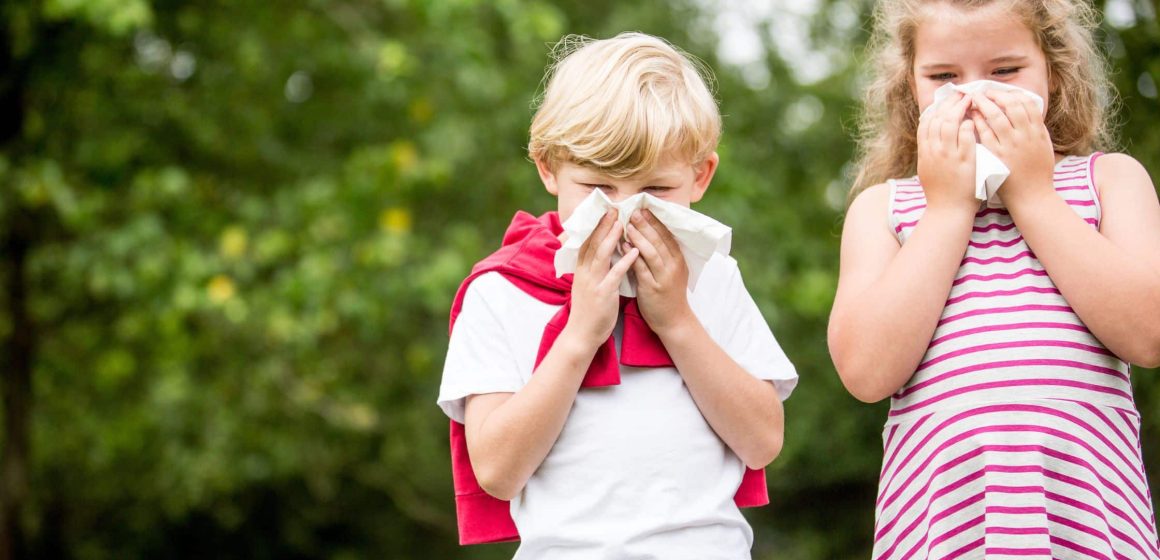Childhood allergies can be a challenging aspect of parenting, especially in areas like Buffalo, NY, where seasonal changes can exacerbate symptoms. Allergies can impact your child’s daily activities, sleep, and overall well-being. Understanding how to identify and manage these allergies is crucial for ensuring your child stays healthy and comfortable.
Understanding Childhood Allergies
What Are Allergies?: Allergies occur when the immune system reacts to a normally harmless substance, such as pollen, dust mites, pet dander, or certain foods. These substances, known as allergens, trigger allergic reactions that can range from mild to severe.
Common Allergens:
- Outdoor Allergens: Pollen from trees, grasses, and weeds, which are more prevalent in spring and fall.
- Indoor Allergens: Dust mites, mold, pet dander, and indoor plants.
- Food Allergens: Common food allergens include peanuts, tree nuts, milk, eggs, soy, wheat, fish, and shellfish.
Identifying Allergies in Children
Signs and Symptoms: Allergies can manifest in various ways, depending on the type of allergen and the child’s sensitivity. Common symptoms include:
- Respiratory Symptoms: Sneezing, coughing, runny or stuffy nose, itchy or watery eyes, and wheezing.
- Skin Symptoms: Rashes, hives, eczema, and itchy skin.
- Gastrointestinal Symptoms: Stomach pain, vomiting, and diarrhea (more common with food allergies).
- Behavioral Symptoms: Irritability, fatigue, and difficulty concentrating, which can be caused by discomfort or disrupted sleep due to allergy symptoms.
When to See a Doctor: If you suspect your child has allergies, it’s important to consult with your pediatrician. They may refer you to an allergist for further testing and diagnosis. Common diagnostic methods include:
- Skin Prick Test: Small amounts of allergens are applied to the skin to see if a reaction occurs.
- Blood Test: Measures the level of specific antibodies (IgE) to certain allergens in the blood.
Managing Childhood Allergies
Avoidance: The most effective way to manage allergies is to minimize exposure to allergens. Here are some strategies for common allergens:
- Pollen: Keep windows closed during high pollen seasons, use air conditioning, and have your child shower and change clothes after playing outside.
- Dust Mites: Use allergen-proof mattress and pillow covers, wash bedding in hot water weekly, and keep humidity levels low.
- Pet Dander: Keep pets out of your child’s bedroom, bathe pets regularly, and use air purifiers to reduce dander.
- Mold: Fix leaks promptly, use exhaust fans in bathrooms and kitchens, and keep indoor humidity below 50%.
Medications: Over-the-counter and prescription medications can help manage allergy symptoms. These include:
- Antihistamines: Reduce sneezing, itching, and runny nose.
- Nasal Corticosteroids: Reduce inflammation in the nasal passages.
- Decongestants: Relieve stuffy nose (use with caution and only for short periods).
- Leukotriene Modifiers: Help control asthma and nasal allergy symptoms.
- Immunotherapy: Allergy shots (subcutaneous immunotherapy) or sublingual tablets can help desensitize your child to specific allergens over time. This treatment is typically recommended for severe allergies that do not respond well to other treatments.
Tips for Buffalo Parents
Stay Informed About Local Pollen Counts: Check local pollen forecasts to plan outdoor activities when pollen levels are lower. Websites and apps like the National Allergy Bureau and Weather.com provide up-to-date pollen information for Buffalo.
Educate Your Child: Teach your child about their allergies and how to avoid triggers. Ensure they know how to communicate their symptoms to adults, especially teachers and caregivers.
Create an Allergy Action Plan: Work with your child’s doctor to develop a comprehensive plan that outlines what to do in case of an allergic reaction. Share this plan with your child’s school and caregivers.
Support Groups and Resources: Connect with other parents dealing with childhood allergies. Support groups, both in-person and online, can provide valuable advice and emotional support. The American Academy of Pediatrics offers helpful resources for parents managing childhood allergies.
Conclusion
Managing childhood allergies requires vigilance and proactive measures, but with the right strategies, you can help your child lead a healthy, active life. By identifying allergens, minimizing exposure, and utilizing appropriate treatments, you can alleviate your child’s symptoms and improve their quality of life. If you have concerns about your child’s allergies, don’t hesitate to seek professional medical advice.
For more information on managing childhood allergies and other pediatric health topics, visit the American Academy of Pediatrics – HealthyChildren.org.












